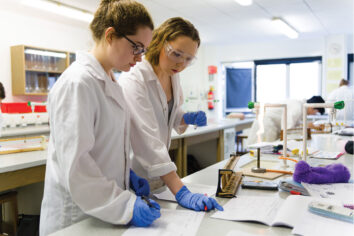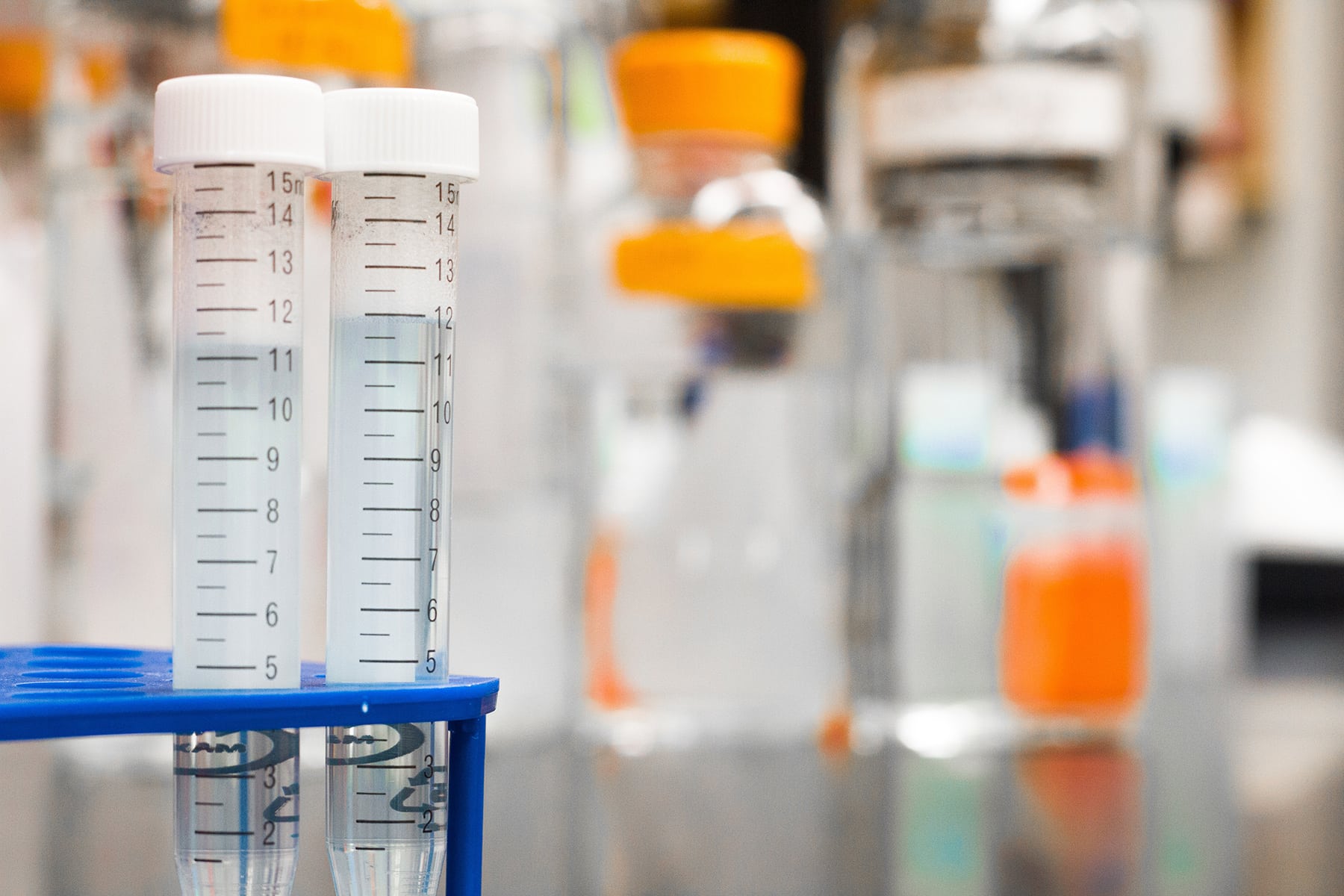New students starting in September: You can find more information about Induction days and submitting your GCSE results in our Start of Year Guide.
why choose this course?
The Access to HE Science Diploma is designed for adult learners aged 19 years and over and is nationally recognised as an alternative educational pathway into higher education. The majority of British universities recognise this qualification as excellent preparation for university and accept the Access to HE Diploma as an alternative to A Levels and other more traditional routes.
Learners will develop an understanding of key concepts in biology and chemistry to underpin their future studies. In addition, learners conduct extensive laboratory work and become adept at conducting practical work with precision and skill. A big emphasis is also placed on study skills and IT giving learners the tools to succeed at college and in a higher education setting.
Apply for this course
Start date: 15/09/2025
TOP COURSE HIGHLIGHTS
EXPERIENCED TUTORS
SPECIALIST WELL EQUIPPED LABORATORIES
EXCELLENT STUDENT SUPPORT
STEPPINGSTONE TO HIGHER EDUCATION

Experienced tutors
You will be taught by staff with extensive experience who will advance your knowledge and skills to meet the expectations of higher education.

Specialist well-equipped laboratories
You will conduct extensive laboratory work and become adept at conducting practical work with precision and skill.

Excellent student support
During your tutorial programme, your tutor will help you to complete your UCAS application for the higher education course you wish to progress to. We also have a learning support team that can provide additional help with literacy, numeracy time management and organisational skills, and a student services team available for additional personal support.
what will i learn?
The Access course is comprised of 60 credits worth of study at level 3 and is composed of units worth 3 or 6 credits.
Graded units:
Biology and Chemistry
We currently offer a science programme that includes 18 credits of biology and 18 credits of chemistry, which more than satisfies the requirements of many health and science themed higher education courses.
- Introduction to Biology (Level 3, 3 credits)
- Human Physiology (Level 3, 6 credits)
- Inheritance (Level 3, 3 credits)
- Disease – fundamentals (Level 3, 3 credits)
- Patterns of Human Disease (Level 3, 3 credits)
- Introduction to Chemistry (Level 3, 3 credits)
- Structure and Bonding (Level 3, 3 credits)
- Inorganic Chemistry (Level 3, 3 credits)
- Quantitative Chemistry (Level 3, 3 credits)
- Organic Chemistry (Level 3, 3 credits)
- Physical Chemistry (Level 3, 3 credits)
Practical Scientific Project
- Pr1 Research project (Level 3, 6 credits)
The science programme includes a 6 credit project unit. Students undertake an independent practical project in a field in which they are interested. Students plan and implement a practical and write up a full scientific report. This is valuable preparation for studying in a higher education setting.
Maths
- NDSA1 Numerical Data and Statistical Analysis (Level 3, 3 credits)
A 3 credit maths unit is included, which is of particular help to students when analysing the data generated from the project. In addition, maths and statistics modules are included in many health and science themed degrees in higher education.
Ungraded units:
- Core HE Study Skills 1 – Research (Level 3, 3 credits)
- Core HE Study Skills 2 – Presentation and Reflection (Level 3, 3 credits)
- Scientific Lab Skills and Techniques (Level 3, 6 credits)
- Examination Technique and Practice (Level 3, 3 credits)
HE Study Skills
The study skills units are a defining element of any Access course. Students gain vital skills to prepare for study at higher education. This includes notetaking, presentation skills, essay writing, referencing and support with writing a personal statement.
Scientific Lab Skills and Techniques
The 3 credit laboratory skills unit is taught at the beginning of the course in preparation for planning and implementation of the independent research project. Students use a wide range of equipment to develop manual dexterity and learn how to collect data with precision and skill. Students complete risk assessments to address the hazards and risks associated with laboratory work and learn how to use excel and online tools to construct tables and graphs for data analysis.
Examination Technique and Practice
The 3 credit examination technique and practice unit focuses on planning a revision timetable and effective revision techniques and evaluation skills. This is excellent preparation for completion of the closed book exams for some of the graded units on this course and prepares students for exams in higher education.
Information Technology
Whatever your level of confidence in IT, we will help you to develop your skills in word processing, presentation software and spreadsheets. Whilst this is not taught as a discrete subject, IT skills are embedded into the Access course. We have a large network of computers with internet access, an extensive eLibrary and a diverse range of software.
Where will it take me?
Progression: Upon successful completion of this course students can progress to a wide range of health and science themed higher education courses such as a degree or HNC/HND. Examples include Animal Behaviour, Biomedical Science, Biological and Medical Sciences, Biochemistry, Chemistry, Conservation and Ecology, Dietetics, Dental Therapy and Hygiene, Geology, Mining Engineering, Forensic Science, Marine Biology, Nutrition, Optometry, Paramedic Science, Pharmacology, Pharmacy, Physiotherapy, Radiography and Zoology.
Careers: This course is very much a steppingstone to higher education. Upon successful completion of this course many learners complete a higher education course that will allow them to enter into a specific career e.g. biomedical scientist, dietitian, radiographer, paramedic or mining engineer. However, some learners can study broader degree programmes and choose a career path later down the line or remain in academia to study a masters and/or PHD.
ASSESSMENT ARRANGEMENTS
The Credit System – The course is credit based. For this particular diploma, most units are three credit units and some are six credits units. Students are required to gain 60 credits in total. 45 credits must be achieved at level 3 from graded units, the remaining 15 credits at level 3 come from ungraded units. Credits are achieved by completing coursework and in some instances timed constrained closed book exams.
The Grading System – The Access to HE Diploma has a grading system. All level 3 credits gained from graded units are awarded a pass, merit or distinction grade based on the learner’s knowledge, understanding and skills. Universities usually make offers to Access students that require students to gain a certain number of credits at merit or distinction level, and will stipulate which subjects these credits must be achieved in.
ENTRY REQUIREMENTS
It is preferable to have GCSE English and Maths at a minimum of grade 4/C before you commence the Access to HE Diploma. However, please contact us to discuss your prior qualifications and planned progression route and we would be happy to advise based on your particular set of circumstances.
For the Access to HE Diploma, level 2 functional skill (FS) may be accepted in lieu of GCSEs, but this will be dependent on the planned progression route of the applicant. Whilst some university courses accept level 2 FS in lieu of GCSEs, others may not. In addition, the university may stipulate they require a wider range of GCSEs and/or a higher grade profile. As such we advise applicants to carefully check the GCSE requirements for their planned progression route.
Completion of one GCSE or FS course alongside the Access to HE Diploma will be considered on a case-by-case basis. However, it is not possible to complete both English and maths alongside.
If your qualifications were gained overseas you need to confirm what your qualifications are equivalent to for the UK. The UK national agency for international qualifications and skills is the designated United Kingdom national agency for the recognition and comparison of international qualifications and skills. It performs this official function on behalf of the UK Government: https://www.enic.org.uk/
NB: Applicants are expected to undergo an interview
Additional INFORMATION
Awarding Body
Cambridge Access Validating Agency (www.cava.ac.uk)
Duration
This course duration is 30 weeks starting in September and finishing at the end of May. Taught hours are approximately 15 hours per week, plus 1.5 hours of tutor. Lectures are taught over 3 days per week. The college day typically starts at 9.15am and ends at 4.15pm.
Funding
Funding for the Access course is dependent on age and prior qualifications. Under certain circumstances you may qualify for full funding. For example, if you are aged 19 to 23 years and do not hold a full level 3 qualification you may receive a full fee emission. If you are aged 19 to 23 and have a full level 3 qualification or aged 24 years plus, you may be eligible for an Advanced Learner Loan to cover the course fees. The advanced learner loan is written off if you complete the Access to HE Diploma and go on to complete a higher education course. For further information, please visit truro-penwith.ac.uk/funding-free-courses.
Adult Bursaries
We currently offer a range of adult bursaries for help with things such as childcare, transport and meals. Eligibility is dependent on household income. More information about adult bursaries can be found on our website here.
Other Access Courses of Interest
You may also be interested in the Access to HE: Medicine or Nursing and Human Sciences. You can find out more about other Access to HE Diplomas here. If you need help deciding which course is the most appropriate for your planned progression route, please do get in touch.
If you would like to discuss Access to HE Diplomas, please email: enquiry@truro-penwith.ac.uk
University Courses You Can Progress to at The University Centre – Truro & Penwith
The Access to HE Science Diploma is an accepted route of entry to a wide range of courses on offer at the University Centre – Truro & Penwith. The Health Hub includes university courses in sport & health, psychology & social science, nursing and operating department practitioner. The Commercial Hub includes university courses in law with business or criminology. You can find out more about our university level course here.
If you would like more information about our university level courses, please email: heenquiry@truro-penwith.ac.uk
Meet the staff, tour the campus and find out about life as a student at one of the best colleges in the country.








